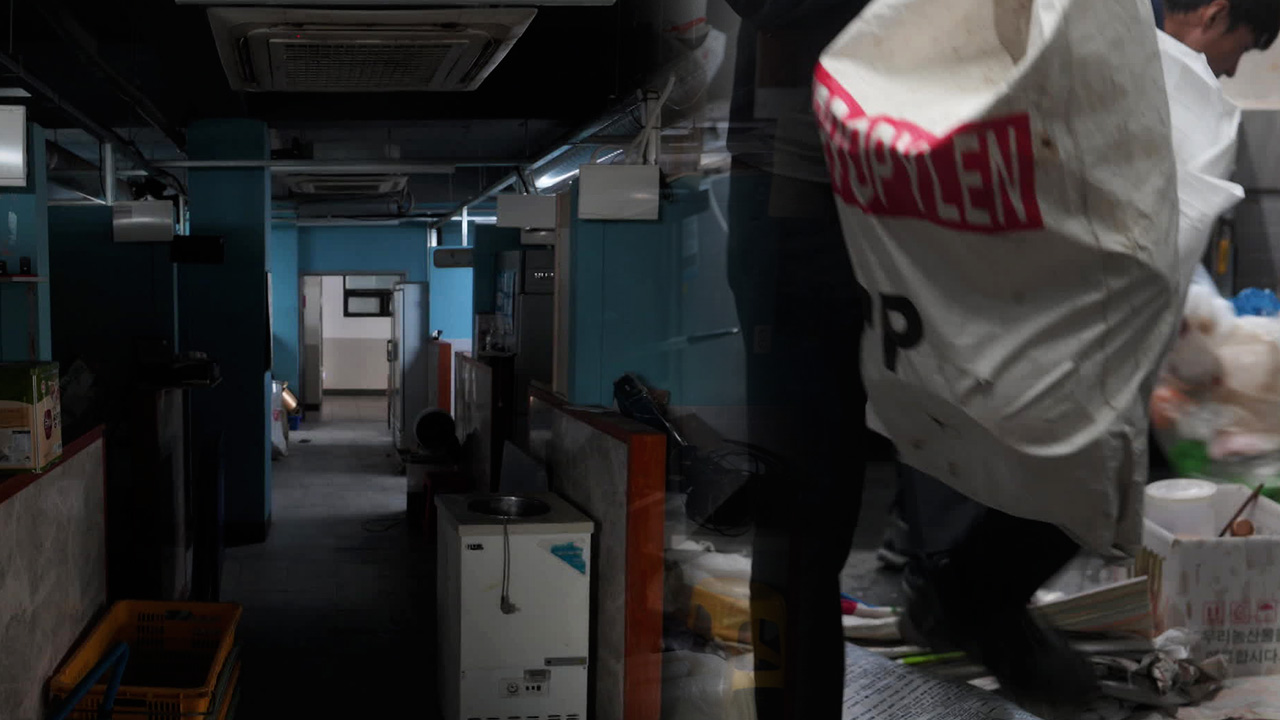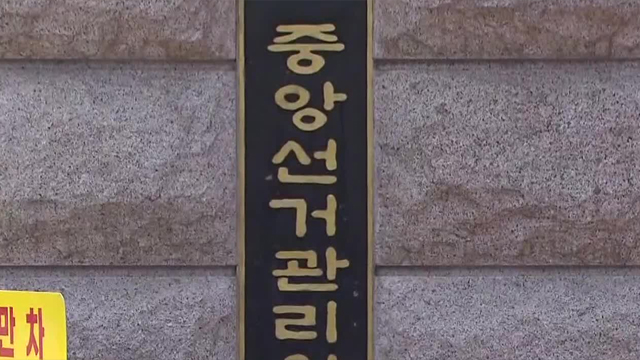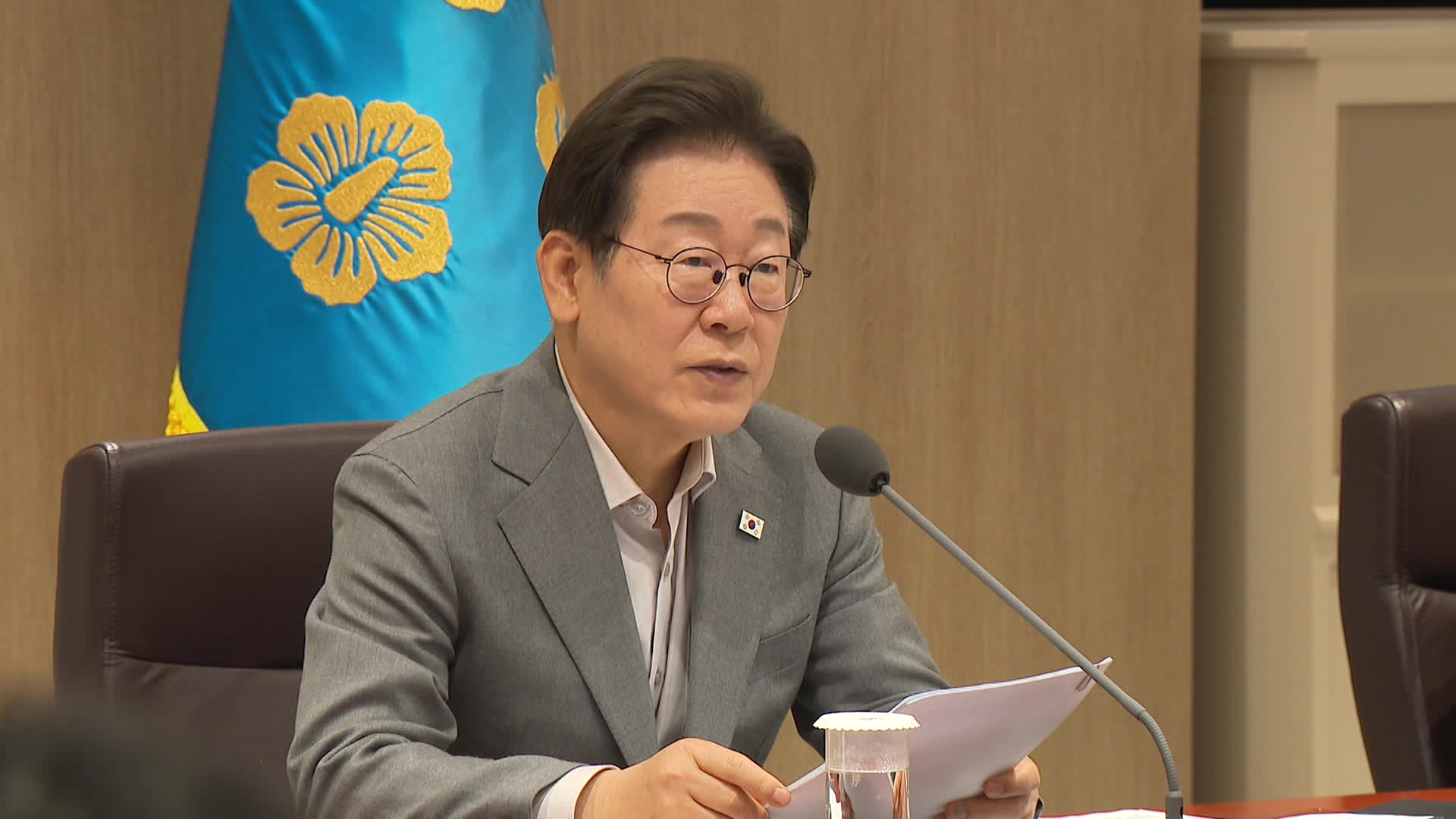Self-employed individuals struggle through tough times amid rising prices, fees
입력 2024.10.14 (00:45)
읽어주기 기능은 크롬기반의
브라우저에서만 사용하실 수 있습니다.
[Anchor]
These days, self-employed individuals are going through tough times due to rising prices and the burden of platform fees.
According to research by KBS, it has been revealed that over 150,000 stores have closed in the past year, which is a higher number than during the year COVID-19 broke out.
This is a report by Jo Jeong-in.
[Report]
A shopping center in Suwon that had ten delivery-specialized restaurants.
Nine of them have closed down.
[Lee Ho-young/Representative of a demolition company: "There is only one store left here, and if this one closes too, the entire shopping center will be demolished. This is the last store."]
This is the sales report of Yoon Hyung-joo, who operated a restaurant here for two years.
She saw a revenue of 470,000 won a day, but after deducting fees and delivery charges of 130,000 won, she was left with 340,000 won.
[Yoon Hyung-joo/Restaurant owner who closed down: "The fees from Baemin and Coupang, and the delivery charges have increased too much."]
KBS analyzed the number of operating stores in the country in collaboration with the commercial district analysis platform OpenUB.
The number of stores, which consistently hovered between 2.25 million and 2.35 million, has decreased to 2.2 million this year.
In just one year, 150,000 stores have closed, which is 50,000 fewer than during the COVID period in 2021.
[Kim Young-gap/KYG Commercial Analysis Researcher: "In the past, even when there were many closures, statistics showed that as many businesses failed, new ones were created. This has rarely happened until now."]
Last year, 1 million self-employed individuals applied for closure.
The proportion of self-employed individuals has fallen below 20% for the first time in history.
On the other hand, as new businesses decrease, existing self-employed individuals are shouldering the enormous burden of closure costs.
Demolition costs alone can reach hundreds of millions of won, and if they cannot find a new tenant, they will also have to pay for restoration costs.
[Closed restaurant owner: "I put it up for sale without any rights fee. There's no choice. Because if I wait, the contract will automatically renew, so I have to restore it quickly..."]
The problem is that there are no jobs to replace self-employment, yet the closure rate is rapidly increasing.
[Lee Jeong-hee/Professor of Economics at Chung-Ang University: "As unemployment rises like this, ultimately, the number of people eligible for government support and welfare will increase."]
This is KBS News, Jo Jeong-in.
These days, self-employed individuals are going through tough times due to rising prices and the burden of platform fees.
According to research by KBS, it has been revealed that over 150,000 stores have closed in the past year, which is a higher number than during the year COVID-19 broke out.
This is a report by Jo Jeong-in.
[Report]
A shopping center in Suwon that had ten delivery-specialized restaurants.
Nine of them have closed down.
[Lee Ho-young/Representative of a demolition company: "There is only one store left here, and if this one closes too, the entire shopping center will be demolished. This is the last store."]
This is the sales report of Yoon Hyung-joo, who operated a restaurant here for two years.
She saw a revenue of 470,000 won a day, but after deducting fees and delivery charges of 130,000 won, she was left with 340,000 won.
[Yoon Hyung-joo/Restaurant owner who closed down: "The fees from Baemin and Coupang, and the delivery charges have increased too much."]
KBS analyzed the number of operating stores in the country in collaboration with the commercial district analysis platform OpenUB.
The number of stores, which consistently hovered between 2.25 million and 2.35 million, has decreased to 2.2 million this year.
In just one year, 150,000 stores have closed, which is 50,000 fewer than during the COVID period in 2021.
[Kim Young-gap/KYG Commercial Analysis Researcher: "In the past, even when there were many closures, statistics showed that as many businesses failed, new ones were created. This has rarely happened until now."]
Last year, 1 million self-employed individuals applied for closure.
The proportion of self-employed individuals has fallen below 20% for the first time in history.
On the other hand, as new businesses decrease, existing self-employed individuals are shouldering the enormous burden of closure costs.
Demolition costs alone can reach hundreds of millions of won, and if they cannot find a new tenant, they will also have to pay for restoration costs.
[Closed restaurant owner: "I put it up for sale without any rights fee. There's no choice. Because if I wait, the contract will automatically renew, so I have to restore it quickly..."]
The problem is that there are no jobs to replace self-employment, yet the closure rate is rapidly increasing.
[Lee Jeong-hee/Professor of Economics at Chung-Ang University: "As unemployment rises like this, ultimately, the number of people eligible for government support and welfare will increase."]
This is KBS News, Jo Jeong-in.
■ 제보하기
▷ 카카오톡 : 'KBS제보' 검색, 채널 추가
▷ 전화 : 02-781-1234, 4444
▷ 이메일 : kbs1234@kbs.co.kr
▷ 유튜브, 네이버, 카카오에서도 KBS뉴스를 구독해주세요!
- Self-employed individuals struggle through tough times amid rising prices, fees
-
- 입력 2024-10-14 00:45:23

[Anchor]
These days, self-employed individuals are going through tough times due to rising prices and the burden of platform fees.
According to research by KBS, it has been revealed that over 150,000 stores have closed in the past year, which is a higher number than during the year COVID-19 broke out.
This is a report by Jo Jeong-in.
[Report]
A shopping center in Suwon that had ten delivery-specialized restaurants.
Nine of them have closed down.
[Lee Ho-young/Representative of a demolition company: "There is only one store left here, and if this one closes too, the entire shopping center will be demolished. This is the last store."]
This is the sales report of Yoon Hyung-joo, who operated a restaurant here for two years.
She saw a revenue of 470,000 won a day, but after deducting fees and delivery charges of 130,000 won, she was left with 340,000 won.
[Yoon Hyung-joo/Restaurant owner who closed down: "The fees from Baemin and Coupang, and the delivery charges have increased too much."]
KBS analyzed the number of operating stores in the country in collaboration with the commercial district analysis platform OpenUB.
The number of stores, which consistently hovered between 2.25 million and 2.35 million, has decreased to 2.2 million this year.
In just one year, 150,000 stores have closed, which is 50,000 fewer than during the COVID period in 2021.
[Kim Young-gap/KYG Commercial Analysis Researcher: "In the past, even when there were many closures, statistics showed that as many businesses failed, new ones were created. This has rarely happened until now."]
Last year, 1 million self-employed individuals applied for closure.
The proportion of self-employed individuals has fallen below 20% for the first time in history.
On the other hand, as new businesses decrease, existing self-employed individuals are shouldering the enormous burden of closure costs.
Demolition costs alone can reach hundreds of millions of won, and if they cannot find a new tenant, they will also have to pay for restoration costs.
[Closed restaurant owner: "I put it up for sale without any rights fee. There's no choice. Because if I wait, the contract will automatically renew, so I have to restore it quickly..."]
The problem is that there are no jobs to replace self-employment, yet the closure rate is rapidly increasing.
[Lee Jeong-hee/Professor of Economics at Chung-Ang University: "As unemployment rises like this, ultimately, the number of people eligible for government support and welfare will increase."]
This is KBS News, Jo Jeong-in.
These days, self-employed individuals are going through tough times due to rising prices and the burden of platform fees.
According to research by KBS, it has been revealed that over 150,000 stores have closed in the past year, which is a higher number than during the year COVID-19 broke out.
This is a report by Jo Jeong-in.
[Report]
A shopping center in Suwon that had ten delivery-specialized restaurants.
Nine of them have closed down.
[Lee Ho-young/Representative of a demolition company: "There is only one store left here, and if this one closes too, the entire shopping center will be demolished. This is the last store."]
This is the sales report of Yoon Hyung-joo, who operated a restaurant here for two years.
She saw a revenue of 470,000 won a day, but after deducting fees and delivery charges of 130,000 won, she was left with 340,000 won.
[Yoon Hyung-joo/Restaurant owner who closed down: "The fees from Baemin and Coupang, and the delivery charges have increased too much."]
KBS analyzed the number of operating stores in the country in collaboration with the commercial district analysis platform OpenUB.
The number of stores, which consistently hovered between 2.25 million and 2.35 million, has decreased to 2.2 million this year.
In just one year, 150,000 stores have closed, which is 50,000 fewer than during the COVID period in 2021.
[Kim Young-gap/KYG Commercial Analysis Researcher: "In the past, even when there were many closures, statistics showed that as many businesses failed, new ones were created. This has rarely happened until now."]
Last year, 1 million self-employed individuals applied for closure.
The proportion of self-employed individuals has fallen below 20% for the first time in history.
On the other hand, as new businesses decrease, existing self-employed individuals are shouldering the enormous burden of closure costs.
Demolition costs alone can reach hundreds of millions of won, and if they cannot find a new tenant, they will also have to pay for restoration costs.
[Closed restaurant owner: "I put it up for sale without any rights fee. There's no choice. Because if I wait, the contract will automatically renew, so I have to restore it quickly..."]
The problem is that there are no jobs to replace self-employment, yet the closure rate is rapidly increasing.
[Lee Jeong-hee/Professor of Economics at Chung-Ang University: "As unemployment rises like this, ultimately, the number of people eligible for government support and welfare will increase."]
This is KBS News, Jo Jeong-in.
-
-

조정인 기자 rower@kbs.co.kr
조정인 기자의 기사 모음
-
이 기사가 좋으셨다면
-
좋아요
0
-
응원해요
0
-
후속 원해요
0















이 기사에 대한 의견을 남겨주세요.